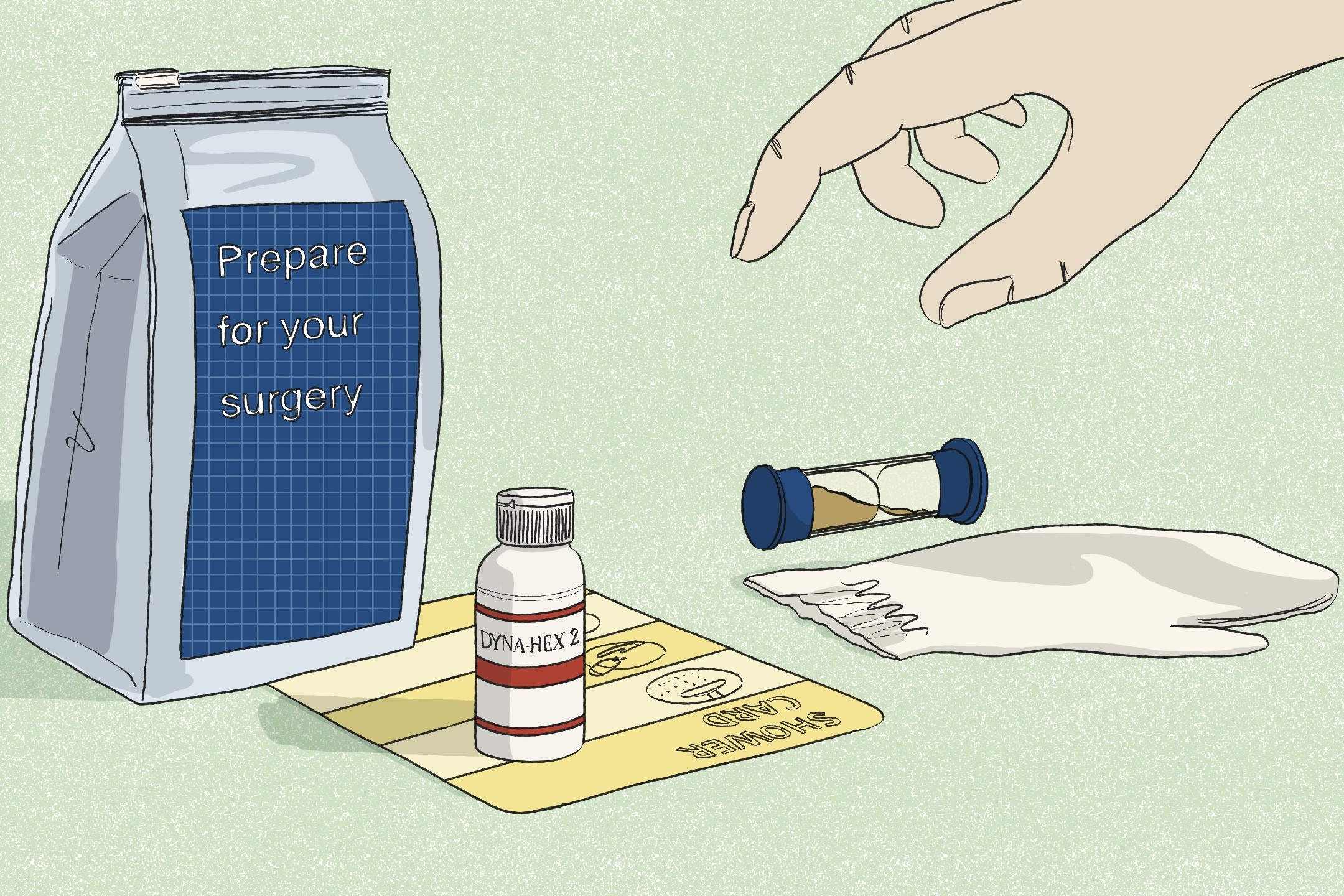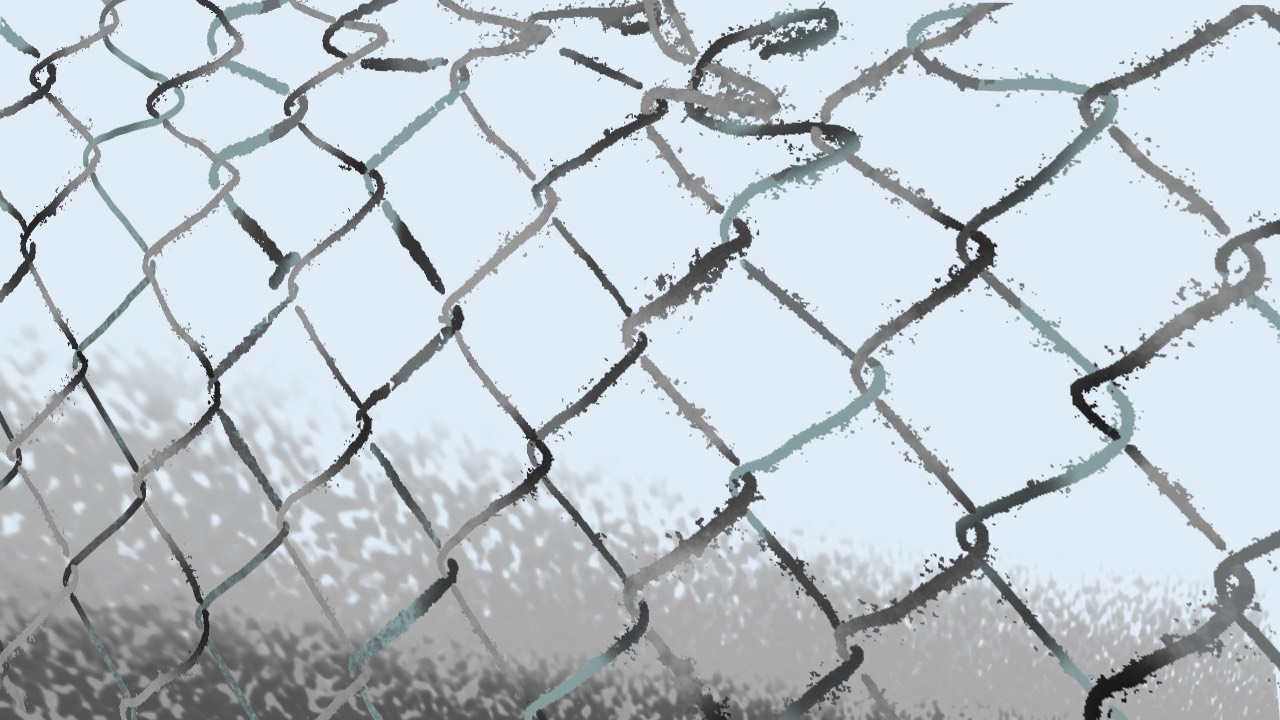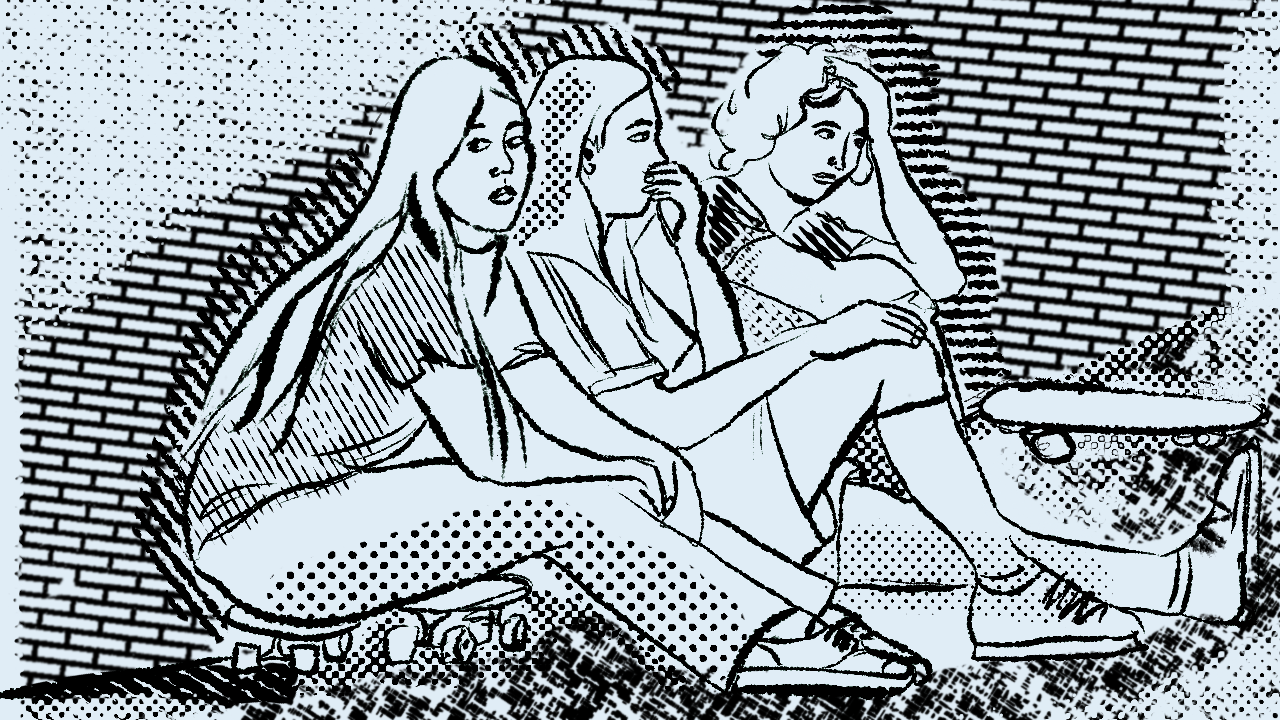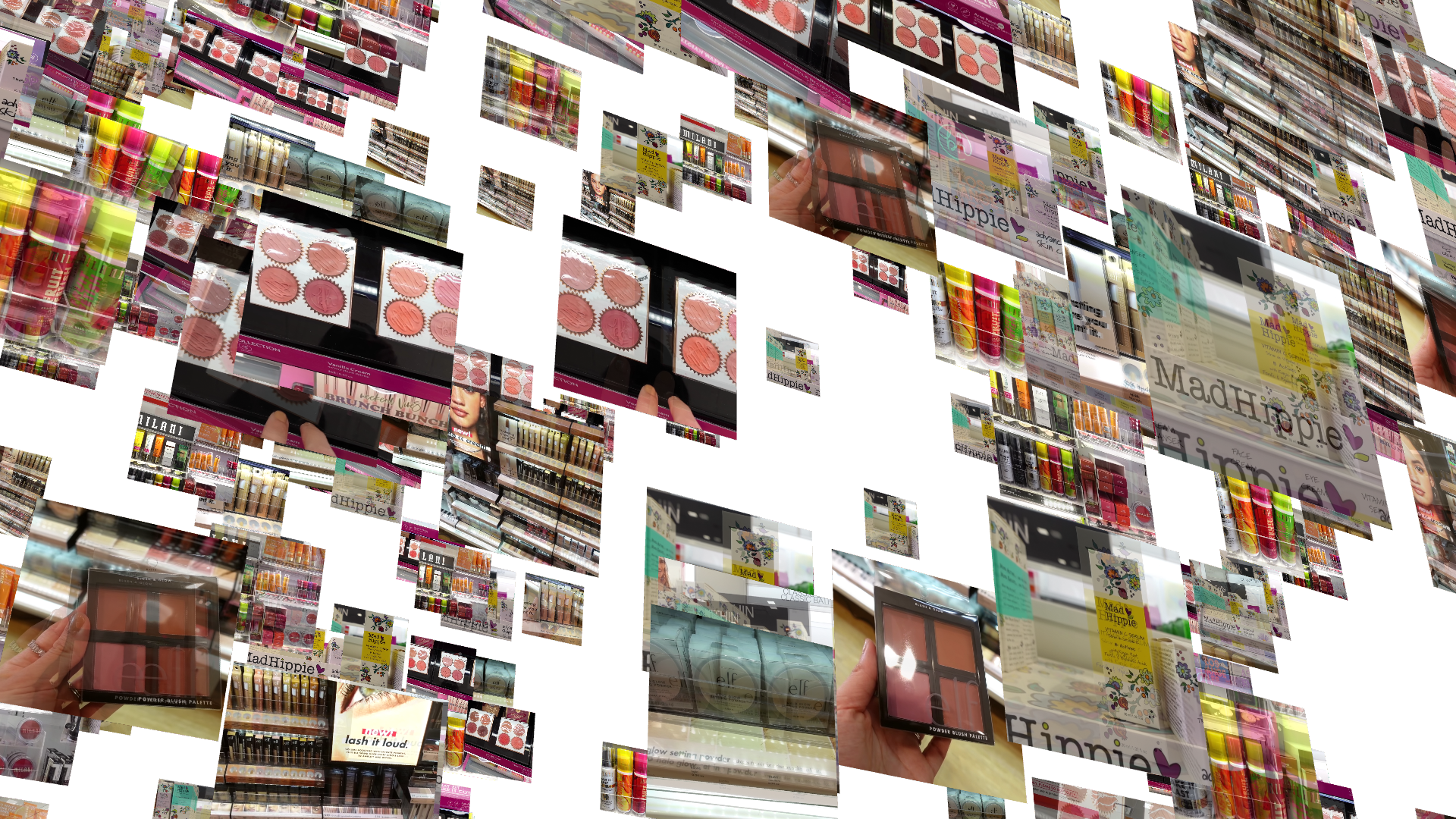“Do you mind if I examine the area?”
I do mind. Never had I allowed anyone to gaze upon my hernia, myself included. I spent years trying to pretend that it wasn’t there, rubbing my loofah with shut eyes in the shower. Up to now, an argument could be made that the hernia and its associated discomfort was all in my head. Before I consent and unzip, I sigh, knowing it is about to be established as an existing thing. I expose myself. Doc reaches down, gloved.
“Woah… Is that the hernia?”
This reaction, I was not expecting. From the moment I resigned myself to this appointment, I told myself that the doc would agree with what I had always assumed: “This hernia is a mild case, you don’t need surgery, you just need X, or a diet of Y.” This vision kept me sane, patient, and steadfast as I counted down the days to our consultation.
“That’s your hernia? It’s so close to your testicles. How painful is this?”
“Quite. And unrelenting.”
“I would recommend surgery. There really is no alternative.”
“God damn it.”
Not only did medical care seem “soft,” the thought of being cut and transforming into a cyborg petrified me.
Lately though, I’ve realized that life with my hernia is not fulfilling. I’m happiest when I’m prone, alone, able to put my palm down my undies and massage. Any task involving movement, or standing, is a burden. Hiding my wincing face is a full-time gig. If an operation is my only route to a future guaranteeing no more of this, I guess I should commit. “…OK.”
He asks when I first experienced the hernia.
I fear the genuine answer could disqualify me from state-sponsored surgery, so I rely on geopolitics, recite my script.
“Yeah, uhh, I lived in China for like, three years. I don’t know how much concrete dust, glass dust, second-hand smoke I inhaled indoors, but I was coughing gnarly one day, and my gut suddenly plopped out.”
He refers me to Dr. Li, a real whiz, he assures me, with “minimally invasive” surgery.
Hearing “minimally invasive” eased my overactive imagination, but a potential Chinese surname made me quiver. Could I keep a straight face? Could I be consistent and continue scapegoating the People’s Republic to the surgeon who would have the power to fix me, for free?
Weeks pass. I reluctantly chastise Red China as I meet my potential healer, Dr. Li, deciding it’s best not to deviate from the testimonial already in my medical records. He tells me frankly that the Oregon Health Plan doesn’t usually fund hernia repairs.
I’m surprised. For the past two years, I’ve been committed to working shit jobs just so that I could stay below the income threshold necessary to qualify for the public health plan; a queer peer at the pot shop, my first minimum wage role, told me that “The Plan” had paid for their “top op.”
Hearing Dr. Li’s news, I’m also relieved; I’ve avoided the scalpel.
“However,” Dr. Li goes on—“look. When I wink, I want you to say ‘yes.’” He starts typing. “Do you experience pain during bowel movement?” Wink.
It isn’t necessarily excruciating to shit. Awkward? Absolutely. But painful? “Yes?”
“Great answer.” This charade continues, and it becomes clear that he’s giving me the answers to a quiz meant to sway Salem, Oregon bureaucrats. Still, Dr. Li is not really goading me into embellishing symptoms of my affliction, but rather encouraging me to recognize its reality—and the fact my years spent downplaying its effects has reflected a distinct sickness of its own.
“Do you experience suicidal ideations?” Wink.
As we finish the test, I’m not sure how to feel, having my case pre-approved in such a way. Yes, I have been an Oregon taxpayer for years. Yes, I dread most aspects of my day thanks to my hernia. And yes, I spend a majority of sober thoughts directed at it, wishing it would heal, or disappear, imagining life without it.
Still, I earned my out through deceit. And I feel shame for having sought help.
“How have you managed these past five years?” Dr. Li asks.
My hernia was easy to hide. As long as I wore pants, there was no visible bulge.
“No, I’m asking how you were able to function with your condition.”
Conduct the following experiment. Place your right hand on top of your pelvis, below the belly button, above the genitalia, and create a claw. You should have a cage fit for a water balloon. Imagine every time you stand up, that space is filled by an aimless, drifting organ, spilling out of a hole in your waist, beckoned externally by gravitational force. Picture picking up something that you dropped on the floor. Bending over 90 degrees would choke that loose gut, sandwiching it between your abs and leg, panini-style.
It started long ago, when I was an undergrad senior frat boy. I took a fat bong hit. Coughing with vigor, I ripped a hole through my muscles. “What the fuck?,” I asked myself, stoned. I was hesitant to say anything aloud, partly because I didn’t want to harsh the vibe of the circle.
I forced a cough to see if I could repeat the anomaly I’d just felt, something inside slipping, sliding around. It happened again, and again, but I decided to stay silent. I could feign mobility, plus I’d just gotten accepted to teach in China. I was a philosophy major, there was no need to jeopardize post-grad plans.
I omit this prologue as I explain my MacGyvered solutions to Dr. Li.
“How did I manage? In China, I would lecture seated by my podium. I would navigate campus with my right hand in my pocket, camouflaging the fist I’d form to act as a makeshift dam.
Anglo colleagues would invite me to “hang,” “travel,” “xplore,” but I knew that on any such adventure I would be constantly distracted, fixated on the eventual prospect of sitting, tempted by every bench, stoop, or floor.
Admit that my preference to remain cooped in my apartment was a result of a lump near my balls? No. My go-to excuse was that I was “flexing my austerity,” reveling in my savings. I preferred to lie, on my sectional. Thankfully, that reason coincided with my reputation for being a poor person, so my behavior wasn’t suspicious.
I returned to America, the pandemic hit and I became an essential worker. As a budtender eager to earn tips, I employed schtick. But the problem with laughter was that it was just as painful as a cough. Both physical actions pushed my organ ever outward.
I would joke with customers, waist intimately glued to my cash register. Maneuvering my guts into place with my hand in my pants and then adhering myself to my station—this blocked my internals from oozing out, but I was also cognizant that eventually I’d have to disembark and grab whatever the customer wanted.
Part of my rationale for working in the cannabis industry as long as I did came from an optimistic faith in “natural healing.” I was constantly high at work. My most reliable med was Rick Simpson Oil (RSO), a concentrated, edible paste of pot that came in a syringe. Its namesake claimed to have survived cancer through a regimented diet of said “oil.” Rick was an inspiration. RSO did help me cope.
And even though the measly salary of being a legal drug dealer automatically enrolled me into the Oregon Heath Plan, I was convinced this hernia was solvable with enough solventless RSO. After more than a year though, I concluded that this was not. When the company I worked for revoked employee freedoms to choose what music was played in-store, I gave my two-weeks.
“Then I sought another job that would pay minimum wage, so as to keep the option of surgery open.”
“Interesting.” Is Dr. Li condescending to me? Or am I part of a pattern?
“I saw an opening for a pizzeria,” I continued. “In my mind’s eye, I imagined free physical therapy, getting paid to lift sacks of flour and squatting to reach cold plates. ‘Perhaps all the exercise will strengthen the area surrounding the hernia, thereby allowing my hole to heal!’”
No. Working in a restaurant with a hernia was the most horrid era of my life. The dumbest decision, an onslaught of agony, one that my arrogance justified for far too long. Each task seemed tailor-made to strangulate my intestines. Coworkers became concerned about my endocrine system, since I requested a bathroom-break every half hour. Little did they know that I spent the approximate duration of a typical male’s urination prone on the tiles of our pizzeria’s pisser, palm over pelvis, pushing my organ back. This ritual reminded me what it felt like to be free of sharp needles nestled near my balls, to feel whole for a few seconds before I’d have to stand and pretend and power through the rest of my shift.
By the last ticket, I would be so happy, knowing that I’d done it, even if I would have to waddle to my car. I reverted to my budtender-era band-aids—trust Rick Simpson—only this time, I received no employee discount. Still, I took a silent pride knowing that I did a great job, and no one knew what I endured to achieve it. Those lazy coworkers of mine, unwilling to lug the tons of refuse out, I sure showed them!
“What did you show them?” Dr. Li asks.
After nine long months, I sought an office job, figuring sitting at a desk would help my hernia naturally heal.
My cells rejoiced at the thought of a comfy 9-5 environment, where they could begin the laborious task of rebuilding my intestinal walls while I sat statically on a rolly chair.
I forgot that, no matter how motionless my occupational duties were, I still had to depart my cubicle occasionally, to urinate. Standing forced my organ outward, and it instantly breached and undid any fledgling, patchwork repairs my body had achieved. Since the office restroom could accommodate multiple users, the only time I could privately lie would be during my state-mandated break. Forgoing food, I’d drive-thru a remote lot, park, recline my seat, rub, and pray no prying eyes assumed I was a pervert.
I thought stuffing a sock in my undies would plug the wound, act as a cast. I worked with a conspicuous bump under my khaki zipper that was impossible to explain away. The optics of these desperate coping mechanisms were not good. And finally, when nothing achieved results, and when I realized I’d worked this higher-pay office job almost long enough to mean that I’d have to switch from the Oregon Health Plan to something called “private care,” I called to schedule the initial appointment.
“I see.” Dr. Li says. “Are you familiar with the logistics of a hernia repair?”
“I’d rather not be.”
“It’s quite simple. All I do is cut you here and here, inflate your belly button, stick some tools down your…”
“No thanks.”
“You’re not curious?”
“Hello Nadir? Yes, I am calling from Dr. Li’s office. The bureaucrats approved your operation! Can we schedule it for early in the morning, July 2nd?”
“It’s happening? Oh god. Ok, I’ll be there. Just to confirm, I don’t have to pay anything?”
With a week to go until my operation, I get a package in the mail. Gel and plastic gloves. I am told to bathe with this antibacterial soap the evening prior and morning of my surgery.
During the latter shower, I confront my hernia. Attempting to look down at my right foot, all I see are toenails. Blocking my view is what looks like a surgically inserted tennis-ball above my nether-regions. This hernia was never the sort of disfigurement that might arouse erotic passions; it remained just an ugly bump that made slurping noises as it sloshed about. I poke it.
My blessed roommate drives me to the hospital at 5 a.m. I’m in agony. I was told to refrain from nicotine and marijuana 24 hours prior to the operation. In the lobby, every other patient is sitting. I pace, in a loop. A nurse leads me to my suite and tells me to change.
I stare at the gown I should don, and I consider backing out. Once I put it on, I’m officially a patient, ready to prostrate. Mid-thought a nurse walks in.
“Why haven’t you changed?”
That tone? She’s not messing around. I fall into autopilot, and choose to follow orders until I am restored.
“Yes ma’am! Question. When do I get to get drugged?”
“Soon. First you need to strip.”
I lay on my portable bed, dressed for the occasion, and dig my fingernails into its plushy handrails. I wonder if taxpayers will be responsible for the damages. Dr. Li comes in, says hi. The anesthesiologist follows. He’s wearing a jade pendant. God damn it.
“So… you got your hernia in China by…” My anaesthesiologist checks the file “…breathing?”
“Yes. Question. When do I get drugged?”
Some whitecoat wheels me into the operating room. I feel emasculated. This is not dignified! I want to tell him “It’s fine! I can walk!” But the ride is kind of fun too, the lights above look nice. I think I finally got drugged.
The operating room? Freezing. All sorts of machines beep. I roll sausage-like onto a more stable recliner, and place my head on an orange jelly pillow, looking at a buzzing light above. Someone tells me to relax, and then I open my eyes somewhere else, aware that something occurred down there.
Instinctively, I reach while asking, “Are my balls ok?”
“Your balls?” There’s a new nurse. “Yes, everything was successful.”
At home, prone on the couch, I can’t sit up. I parachute food into my mouth.
“Take the painkillers they prescribed,” my roommate suggests.
“No. I want to feel the evolution of my condition, study it. Hand me some edibles though.”
Agony persists. I call Dr. Li’s office, and tearfully ask, “Are you sure the surgery worked?”
A nurse responds. “Yes. To reiterate, everything was successful.”
“Then why am I crying?”
“Many people feel vulnerable post-op. Your body was factually violated. Take it easy this week!”
I can’t follow her advice. My mom is going on a weekend getaway and asked me to chaperone her in-laws and service dog. She’s had no idea of my affliction.
Months pass. Now an employee for my alma mater, I move back to the city where my hernia began. I walk around town in the evenings, smiling with my newfound capabilities. I still brace myself when I bend over, yet I seem to forget that I now have a mesh net or something that’s like, stapled, or stitched around the hole. Nothing leaks. There is no gut to panini.
I meet with my former philosophy professor, now emeritus, at the brunch restaurant he goes to every morning. He tells me about his hernia before he orders his usual. I ask the waitress for bottomless black.
“No Way! I’m writing an essay on my former hernia!” I say. I tell him about it.
“You spent years pretending that you were alright, proving that you were stronger than your affliction, but for whom?” my professor asks, laughing.
“Who was I trying to impress?”
“Sure, who were you performing for?”
“Apart from myself? No one. And that’s the weird part. I always pictured my struggle as something noble. I was proud, but because no one knew what I was going through internally, my actions never could achieve the esteem I assumed they deserved. Maybe God noticed.”
“Is this a Balkan thing? Suffering silently, seething that your toils aren’t recognized?”
I remember that my mom and I only learned about her mother’s cancer when the hysterectomy was done, remission conclusive. While my hernia and I were still together, I would drive to my mom’s to cook and clean. She was always very grateful, and I doubt she would have allowed me to continue helping if she knew about my gaping hole. Perhaps a Balkan thing.
My professor nods and munches, giggling. He finds it odd that I watch him eat, that I don’t join in, but when his daily migos (sub hashbrowns for beans) lands, all I can think about is how I could recreate the same dish for a pittance.
I tell my professor about the time, as a high schooler, I played my first game of tackle football— and I sprained my wrist.
“The following day,” I say, “I pleaded with my father to take me to the doctor, since I couldn’t lift a pillow. He told me to ‘wait.’ I had a vague understanding that our insurance was ass, so I didn’t push, but eventually, when I couldn’t do my chores, he realized that I wasn’t faking it.”
An X-ray revealed I had a hairline fracture. I was given a sling and some oxycodone, and told to schedule a follow-up for a proper cast. I never did, and while my wrist sometimes aches, I’m fine. If Oregon did not have its health plan for the impoverished, I honestly believe that I would have carried my hernia to my deathbed. I’d rather be “fine” than in debt.
My professor has finished his migos, and he cackles.
He says there is something bizarre about my story. It made sense to him that I refused surgery in China. “But the following half, while you worked your so-called shit jobs…salvation was a phone-call away. You knew you wouldn’t have to pay anything. In fact, it seems like that health plan was a key aspect of your calculus for remaining poor.”
He went on. “I see a perverse logic. You were rational enough to keep the possibility of surgery open, but not enough to commit to the operation, which, I suspect, you implicitly recognized as your sole solution.”
And it was. I consider how I’m sitting, without any nagging discomfort, without my hand in my pants, and marvel at modern medicine.
“So I have to ask, how will you know if you learned anything from this ordeal?”
I have no answer, so we do an awkward shoulder-to-shoulder hug and I walk home. The fact that he laughed at my story is good. This isn’t a survivor’s tale, it’s ridiculous. I can laugh too, after the fact. I took pride in my suffering, refused help, and now I wish for that to be mocked. Hopefully the embarrassment of exposure will goad me into growing. ▩



